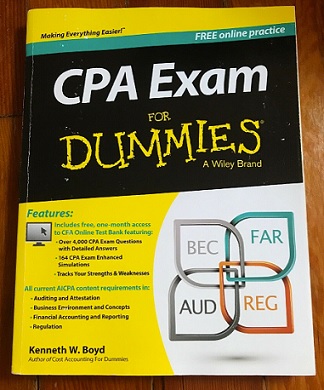State-run investment accounts promote their 529 accounts
as a tax-free vehicle for saving money for your child’s college tuition. These
accounts are so problematic that I have never heard of a single success story. Two
people I know claimed it was beneficial for them, until I went through the math
to reveal that they were 18% worse off than if they had simply saved cash under
their mattress. Last week, a relative with a 16-year-old in high school was
bemoaning that he didn’t follow my advice and their 529 account keeps losing
money.
Briefly, a 529 account is a college education savings
program run by each state so no two plans are exactly alike. Although the
investment gains can be free from federal and state income taxes, there are
many rules on how and where the money can be spent (without penalties), and very
limited selection of investment options. There are two types of 529 accounts, a
savings program or a pre-paid program. In my opinion, neither of these programs
are any good. Let’s go through some of the issues on why you should avoid 529
accounts in general:
1. It is a timing mis-match. If there is a stock market fall then it can take 10-20 years for stock prices to recover to their prior level. So unless you started contributing to the account 20 years before their birth and exit all funds with stocks the day that the child is born – you are in a structurally incorrect product. If there is a big stock market correction when the child is 8-14 years old, it is likely there won’t be enough time for the market to make up for these losses.
2. 529 investment fund options are a prison of poor-performing mutual funds. Mutual funds incur far higher fees than ETFs (exchange traded funds). 529 funds then add an EXTRA layer of fees onto these expensive mutual funds, so they always perform worse than what you could do on your own. Even the “stable fund” that only pays interest offers far less than what you can get on your own because of high expenses. Although 529 account costs have been moving down, they are still the highest-fee location for money.
3. 529 plans are a maze of rules that have been known to change each year. So unlike other financial products, such as life insurance or an annuity, you do not actually know what you are buying until it plays out over time. The whims of the state administrators (politicians and bureaucrats) have dramatically altered plan details over the last 20 years. When it comes to kids, education, careers, training, and timing – you and your family need the most flexibility; but a 529 account is the opposite of flexibility.
4. Only the state and school come out ahead with Pre-Paid
529 plans. The plan’s marketing claims that you are locking-in a tuition price
now to save money from tuition price inflation; they are taking on the tuition
price risk. However, I have NEVER seen this happen. Instead, either tuition
will increase at a lower rate than expected (so you come out financially
behind), or tuition will increase at a higher rate and they change the plan
rules (so you also come out behind). Basically, the plan administrators will
always change the rules so that they do not lose money – which means it is 100%
certain that you will come out behind.
If these plans are not so good, what, in my opinion, may
be better? Rather than go through the math modeling to prove it, if I had a
child born today and wanted to begin saving for their college, this is what I
would do:
1. Estimate the total cost of a 4-year degree from a
potential candidate school, 18 years from today.
2. Divide that number by 19 years (mid-college age) to
get an annual savings goal.
3. Then divide that number by 12 to get a monthly savings
goal.
The result is the amount of money that I would put into a simple savings account with FDIC insurance. This way, the account would only ratchet upward with interest income. I would search for a high rate, usually from one of the online bank accounts, and re-check this once a year to make sure the account is earning a competitive rate (today, I’m earning 2.37% at MySavingsDirect). When it comes to saving or investing, the amount that you contribute is far more important than getting an unrealistic and spectacular return that is more likely to backfire. Another college savings candidate may be U.S. Treasury iBonds (these pay interest that is income-tax free and are paying 2.83% today).
It is my view that 529 plans are swamps with many dangers and drains for your money. The lure of saving a few bucks on income taxes is never worth the changing rules, poor investment choices, timing mis-match, and restrictive policies on your money.










